Named after HRH The Princess Royal, a lifelong advocate of engineering and Royal Fellow, the Princess Royal Silver Medal recognises outstanding and evidenced personal contribution to UK engineering, which is resulting in successful market exploitation, by an engineer with less than 22 years in full time employment.
Who is eligible to be nominated?
Engineers who are eligible for Princess Royal Silver Medals will satisfy the below three criteria:
- They will be an outstanding engineer who've made a personal contribution to UK engineering
- An engineer who has demonstrated successful market exploitation of an innovation.
- They will have less than 22 years in full-time engineering (any career breaks will be taken into consideration).
Up to four medals are awarded each year. Consideration will be given where an equal contribution has been made by more than one person, in which case, a joint award of two medals may be justified.
Meet our 2025 winners
Alex Kendall
CEO and Co-Founder of Wayve
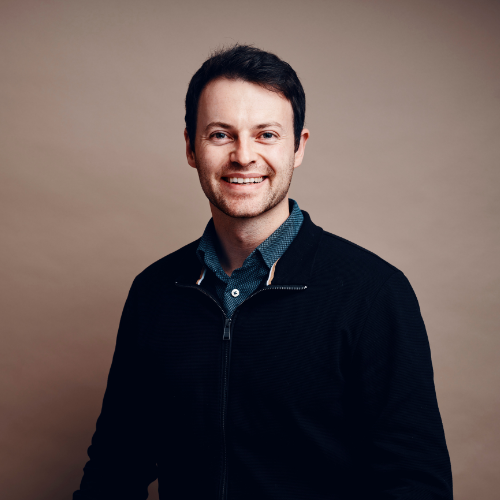
Alex co-founded Wayve, a now billion-dollar UK company that utilised deep learning to solve the longstanding challenges of self-driving cars, technology that could also be applied to robotics.
Backed by $1 billion in Series C funding led by SoftBank with support from NVIDIA and Microsoft, Wayve is a one of the UK’s most valuable deep tech startups. Alex Kendall co-founded the company in 2017 following his PhD at the University of Cambridge, where he pioneered a contrarian approach to self-driving cars.
Wayve’s approach, known as AV2.0, leverages end-to-end AI to create a general-purpose driving intelligence that can adapt to new environments, pushing different vision of deep learning that acted contrary to the industry standard of rule-based systems, maps and multiple sensors. Its models are trained on tens of petabytes of real-world data from its team of safety drivers. Wayve tests its models in both real-world driving setting and in simulation. Real-world testing exposes AI to diverse conditions, while simulation enables efficient, large-scale validation.
Professor Themis Prodromakis
Regius Chair of Engineering and RAEng Chair in Emerging Technologies, at the University of Edinburgh
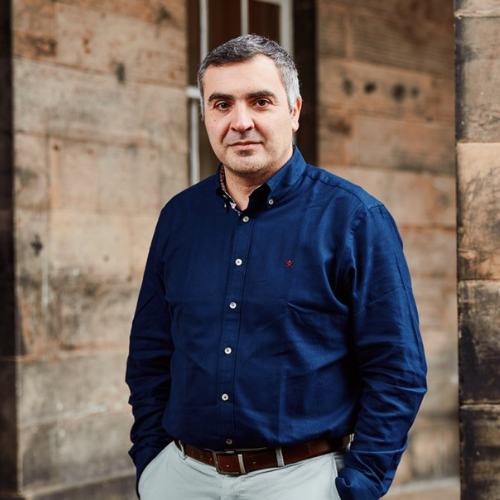
Themis is being recognised for his work which focuses on developing metal-oxide Resistive Random-Access Memory technologies which could revolutionise the energy efficiency of artificial intelligence.
He is internationally recognised for his work on memristors, short for memory resistors. They are brain-mimicking devices that combine memory and processing in a single component. This is radically different to the way conventional computer chips work, which store data on a separate unit. Memristors process information in a way that’s much closer to how the human brain works—efficiently, in parallel, and with minimal energy. Global electricity demand from data centres is projected to double by 2030, so this system offers a promising solution and could revolutionise the energy efficiency of artificial intelligence.
Themis is also the Director of the Centre for Electronics Frontiers, an Honorary Fellow at Imperial College London and is a Royal Academy of Engineering Chair in Emerging Technologies.
A selection of our awardees
News about the Princess Royal Silver Medals
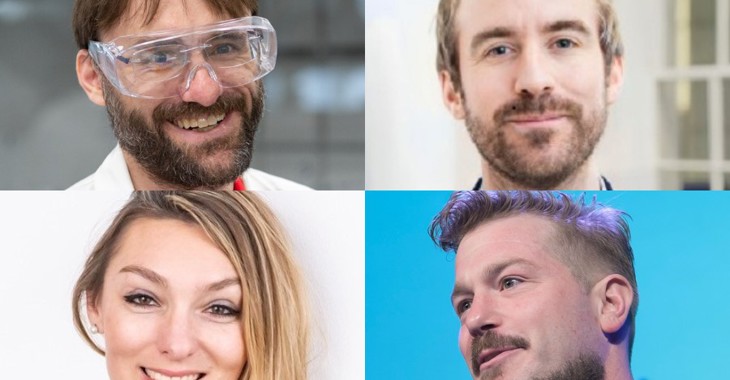
From AI health tech to sustainable dyeing: top UK engineers awarded The Princess Royal Silver Medal
Four of the UK’s leading engineering innovators are to be presented with The Princess Royal Silver Medal, one of the Royal Academy of Engineering’s most prestigious individual awards.
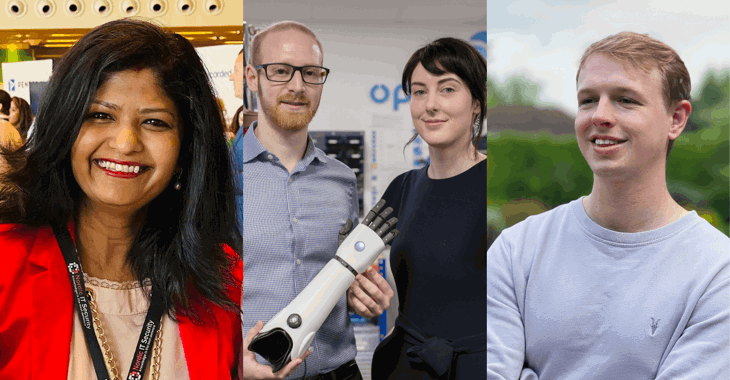
From bionic arms and portable incubators to cybersecurity, four innovators win The Princess Royal Silver Medal
Four of the UK’s leading engineering innovators are to be presented with The Princess Royal Silver Medal, one of the Royal Academy of Engineering’s most prestigious individual awards.
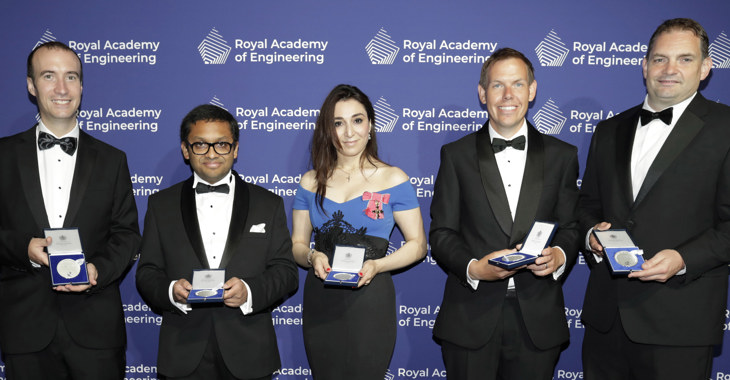
Five pioneering engineers to be presented with The Princess Royal Silver Medal
Robotic skin, miniature AI sensors, a new imaging technique for healthcare or radiation mapping, and new battery solutions are among the medallists’ innovations.



